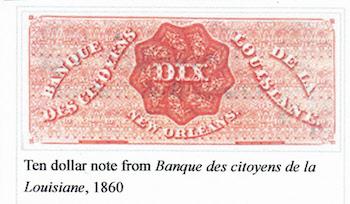 July 15, 2016 - “I Wish I was in Dixie” is a popular song about the South. It was written by composer Daniel Emmett, a Northerner from Mount Vernon, Ohio, which was published in 1859. It has become sort of the national anthem of southern states.
July 15, 2016 - “I Wish I was in Dixie” is a popular song about the South. It was written by composer Daniel Emmett, a Northerner from Mount Vernon, Ohio, which was published in 1859. It has become sort of the national anthem of southern states.
I have wondered why and how the southern states are referred to as “the land of Dixie”. Where did the word “Dixie” come from? Research on the matter does not completely settle those questions.
We commonly refer to “Dixie” as the eleven southern states that seceded from the Union in 1860 and 1861 to form the new confederation named the “Confederate States of America”. They were (in order of secession): South Carolina, Mississippi, Florida, Alabama, Georgia, Louisiana, Texas, Virginia, Arkansas, North Carolina, and Tennessee.
Today the word “Dixie” is most often associated with those parts of the Southern United States where traditions and legacies of the Confederate era and the antebellum South live most strongly.
Research into the origin of the word Dixie reveals at least three different theories that attempt to explain the term.
The most popular explanation of the term “Dixie” comes from the ten-dollar notes issued by the Citizens’ Bank in bi-lingual Louisiana before the Civil War. The note bore the word dix on the back, which is the French word for “ten”. Soon New Orleans, then Louisiana, and the entire south were called “The land of Dixie”, and later “Dixieland”, and finally “Dixie”.
Remember, this was in the 1850s, before the Federal Government printed money. Money was printed by private banks, most of which went under during the Civil War. The most dependable printed money in Louisiana at the time was that printed by the Citizen’s bank. This made it highly desirable up and down the Mississippi and its tributaries.
A second theory of the word “Dixie” is that it preserves the name of a “Mr. Dixy”, a slave owner on Manhattan Island, where slavery was legal until 1827. His rule was so kind that “Dixy’s Land” became famed far and wide as an Elysium abounding in material comforts.
A third theory of why the word “Dixie” came to apply to the entire South is because the word was popularized in a song written by a minstrel musician and performer named Daniel Decatur Emmett. His most famous composition was published in 1859 on the eve of the Civil War. The song, “I Wish I Was in Dixie’s Land” was already very popular in New York and the surrounding area, but when the war started it became the theme-song of the South.
It has been written that Emmett’s song was a favorite of President Abraham Lincoln, who said after the war ended, “I have always thought that “Dixie” was one of the best tunes I ever heard. I had heard that our adversaries had attempted to appropriate it. I insisted so that yesterday I heard that we had fairly captured it.”
The song became the unofficial anthem of the Confederate States of America during the Civil War. The tune’s minstrel-show origins have created a strong association of “Dixie” with the Old South, despite the fact that it was written in the North. As a result, some today perceive the song as offensive and racist, while others see it as an honorable part of Southern heritage.
Some people think that the word “Dixie” derives from Jeremiah Dixon, a surveyor of the Mason-Dixon Line, which defined the border between Maryland and Pennsylvania, and, for the most part, free and slave states. However, this theory is generally dismissed.
So, there you have it, the various theories of why we southerners live in the land of Dixie. I suppose you will have to come to your own conclusion as to which one strikes your fancy.









